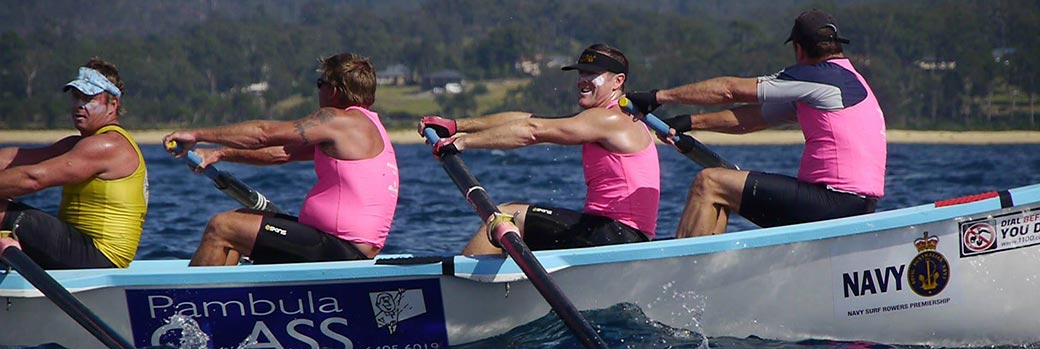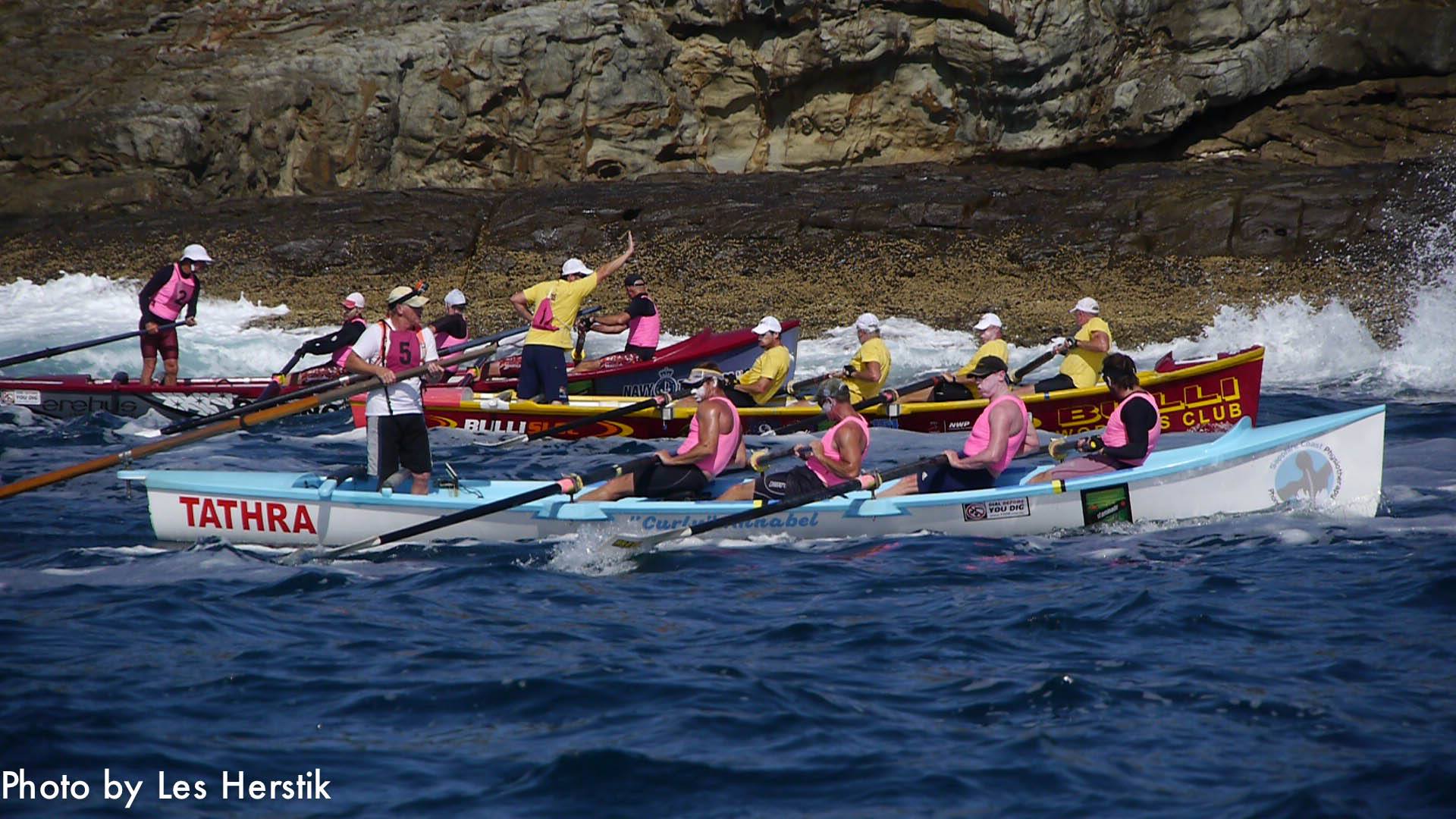What You Need To Know about the George Bass Marathon....
The really important rule you will note has been left unsaid and refers to the actual racing. In the words of one of the races founding fathers, Nick Dixon, “the great thing about the rules of marathon racing is that there are no rules”. It’s a big ocean out there and you will have to do something pretty silly to bring the officials down on you. The other thing to note about the GBM is that the officials will work with you to present a happy race. You will have the opportunity to meet with the Race Referee at the completion of each day’s racing where each team has the perfect opportunity to ask questions and be part of any decisions for the next day’s racing. These team briefings include your powerboat backup support driver, so everyone is involved in presenting a great event.

Of course we have winners and the race records can be seen elsewhere on the web site, but what we really have are competitors that become part of the Bass family. You will do many things in your life but none more challenging or rewarding than rowing a George Bass Surfboat Marathon. One of the real points of difference between this event and a sprint series is that in a sprint series you either win or you’re eliminated. In the George Bass Marathon every day is a new race and secondary competition develops within the race. It doesn’t really matter if you’re at the front, middle or rear, you will be racing a group of crews that are at your speed and some of the best tussles can be seen between crews racing to finish 18, 19 or 20.
Another important aspect is the public support. You can expect holiday crowds in the thousands to meet you at the completion of each day’s racing. We have massive media exposure through coastal radio, print plus National TV. We will again have TV cameramen with us on the race filming each day’s racing for prime airtime in the National nightly news bulletin.
To sum up, the GBM is an adventure, it’s hard, it’s rewarding and something every boat rower needs to have on their CV.

In the beginning some crew legends were made on the back of certain crew members rowing the whole leg or even the whole race without a change. As the race has developed so to has the speed of the boats on the back of crew preparation. During the 70’s it wasn’t unusual for crews to row a leg and crew change only once or twice. The race is now so much faster that individual rowers are sitting in the seat for 20 to 30 minutes maximum before a change is called. Race ratings vary from crew to crew but it is pretty common for ratings to sit at or above 30 per minute the whole way.
The start every day is in deep water between markers at the back of the surf. Under no conditions do we race off a beach. Remember you will have sliding seats fitted and the straight line start will set you on a course directly down the coast.
During the race the ocean is your oyster. You may steer whatever course you wish and many crews do just that. Some stay close to shore while others can be found kilometers out to sea. One of the classic ocean racing quotes was made during the 1981 marathon when a cagey old sweep of the young Corrimal crew was heard to yell at the crew from Moruya “move over Moruya and let us through”. Remember these crews were racing kilometers out to sea with nothing but ocean all around.
The finish will always be fair and square to the racing course between markers beyond the break. You will never be asked to complete a race in through the surf. This is a rowing race not a race of chance and the last thing we want to do is place tired crews at risk by asking then to crack waves at the end of a marathon under race conditions.
Crew changes are entirely your call. Many races have been won and lost by the timing of that call, both in terms of the stage of the race and how long it takes to complete the change. Remember you will need a powerboat as back up. Your extra crew rowers start the race in that powerboat and you may change your crew around as many times as you wish during the course of each day’s racing.

You will wake about 6 am and start the preparation with meals, strapping, team meetings etc. You are usually no more that 30 minutes max from the start location. You can row to the start line off the beach or through a river mouth it’s your call. See race records, but you will normally be off the beach around midday and heading back to camp. The crew’s highest priority at that time is food and sleep in that order. It’s not unusual to see a game of camp cricket at some stage during the afternoon and you can most certainly see a few cold ones being put to good use by the camp backup crew. The afternoon is a good time to explore the town you’re in if that’s your thing. You usually see the rowers doing what they do second best and that’s eating again around 6 pm and except for the camp party animals, lights are out reasonably early due to tiredness. Next day you do it all over again.
Remember we camp at school grounds, council parks etc, and so all crews become part of a big traveling circus.
Many crews will have specific questions that we are happy to answer but it would be good if we were answering questions from crews who had an entry form in place. You can email questions to the address in the contacts list on the Web site.
Race Director















